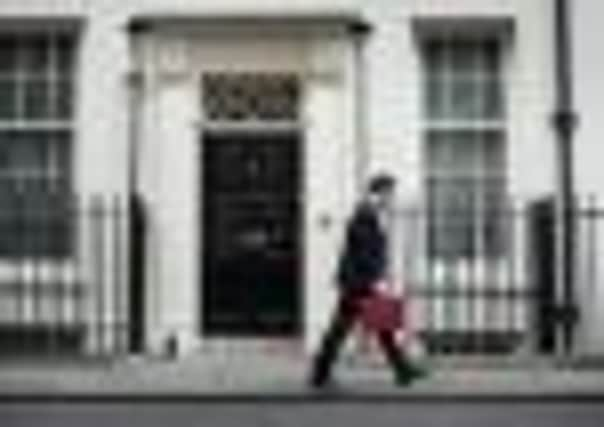George Osborne’s Budget set to make wealthy pay


There is the potential cut in the 50p top rate of tax. That would see a lot of people trying to delay any income payments over the next 12 days, says Donald Drysdale, assistant-director of tax at the Institute of Chartered Accountants of Scotland.
Similarly, with rumours of a massive tax grab on the sale of homes costing £2 million and over, this small window before any new penalties kick in might be the best moment for London’s oligarchs and bankers to snap up that £20m villa in South Kensington.
Advertisement
Hide AdAdvertisement
Hide AdWhether the 50p cut happens is still up for grabs. But there is little doubt that up-in-lights pledges to soak the rich will be on display in Osborne’s shop window come Wednesday. Unlike many of its predecessors, this is one Budget where the process of negotiation has been conducted almost in public, thanks to the very conscious decision by the Liberal Democrats to make clear exactly what it is and is not aiming to get.
Like all Budgets, Osborne’s statement on Wednesday lunchtime will doff its cap to the usual mixture of politics and economics. And the politics suggests that both the Conservatives and Lib Dems must use the Budget to demonstrate their fairness. Unemployment is rising monthly. Families are being squeezed. Public fury over bankers’ bonuses and the continuing high-roller lifestyles of the UK’s finance kings shows no sign of abating.
Hence the nervousness even among the Tories who support slashing the 50p tax rate. They fear the message would be that the government had decided to cut tax for the richest 275,000 people at the same time as the thousands of people with children earning over £44,000 had to swallow the axing of their child benefit.
But whether or not it goes ahead, there will be a huge political imperative for both coalition partners this week to show that, in other areas, the rich are being penalised for the wider populace’s good.
For the Lib Dems, the big prize would be an increase in the tax threshold – the figure at which people start paying tax on their income. Ministers are committed to getting it to £10,000 by the end of the parliament, but Lib Dem figures are now confident that deadline has been brought forward to help the “squeezed middle”. Such a cut would lift thousands of low earners out of tax altogether. It would also offset the child benefit axe for higher earners – a working couple would have an extra £1,400 a year in their pocket.
But it is fiercely expensive. For every £100 the allowance rises, the cost to the HMRC is about £0.5bn. Clegg wants to see it rise by £1,900, from £8,105 to £10,000. So the hunt is on to find the money from those at the top of the tree.
Osborne is said to be deeply suspicious of the Lib Dems’ “mansions ’n’ tycoons” tax raid. The former would slap a 1 per cent levy on all homes over £2m. The latter would impose a floor on the amount of income paid by everyone, to cut out tax avoidance schemes used by the rich.
Other options are available. A major one is on stamp duty. Not only could the Chancellor hike up the levy on sales of properties over £1m and £2m, HMRC is said to be eager to crack down on wealthy tax avoiders who dodge the duty altogether by buying homes through offshore companies.
Advertisement
Hide AdAdvertisement
Hide AdOsborne could close loopholes that see many high-earners avoid the 50p rate by exploiting the capital gains tax system, which can be charged as low as 10 per cent.
Or, in what would be a major act of political cross-dressing, he could go after inheritance tax dodgers who avoid the tax by buying up properties or businesses.
That would be unpopular among his Tory supporters. And that might be exactly why Osborne presses ahead.